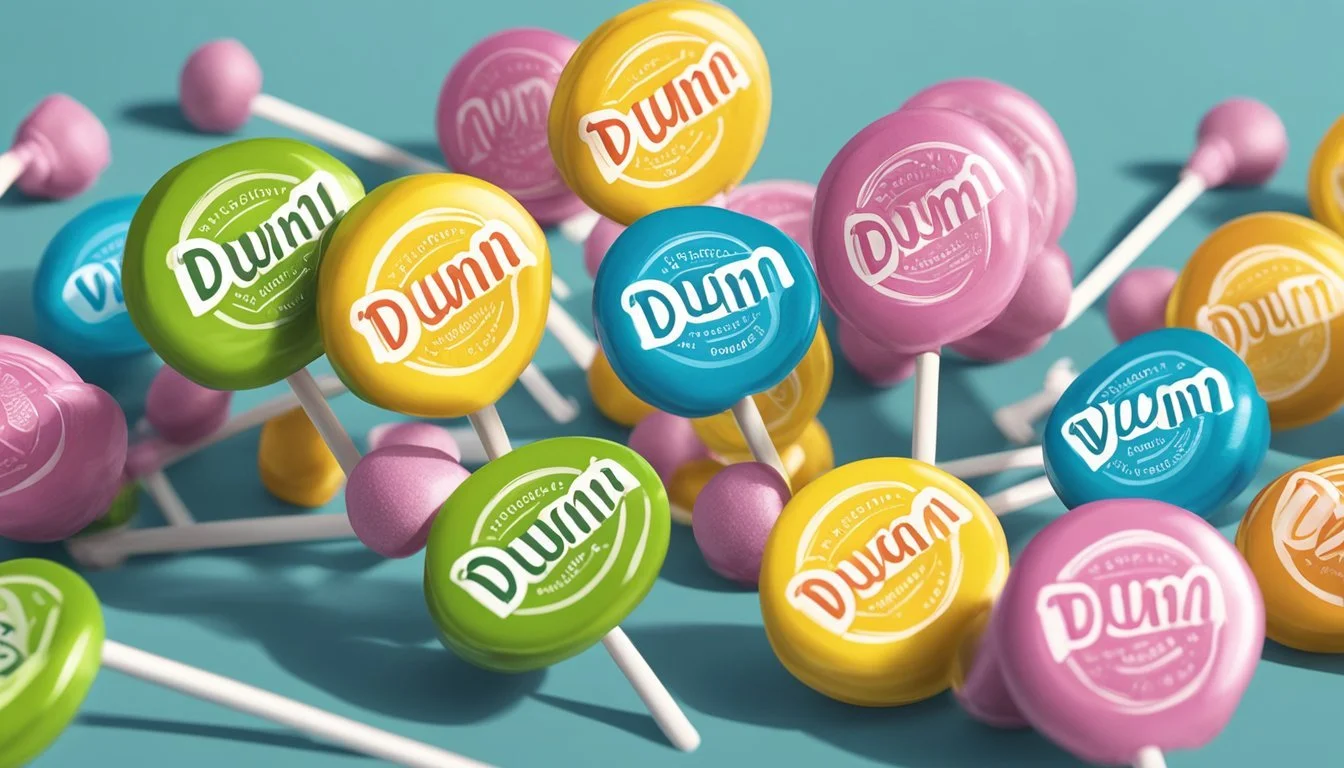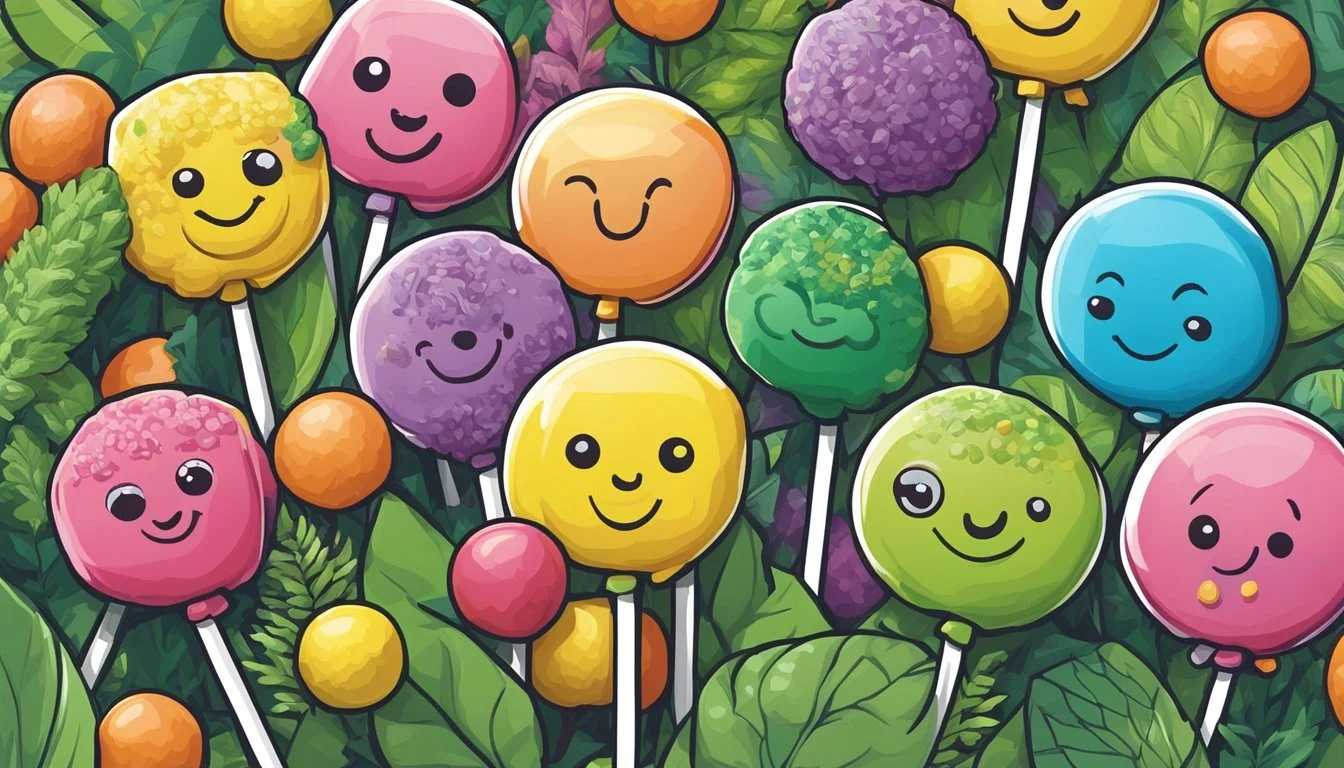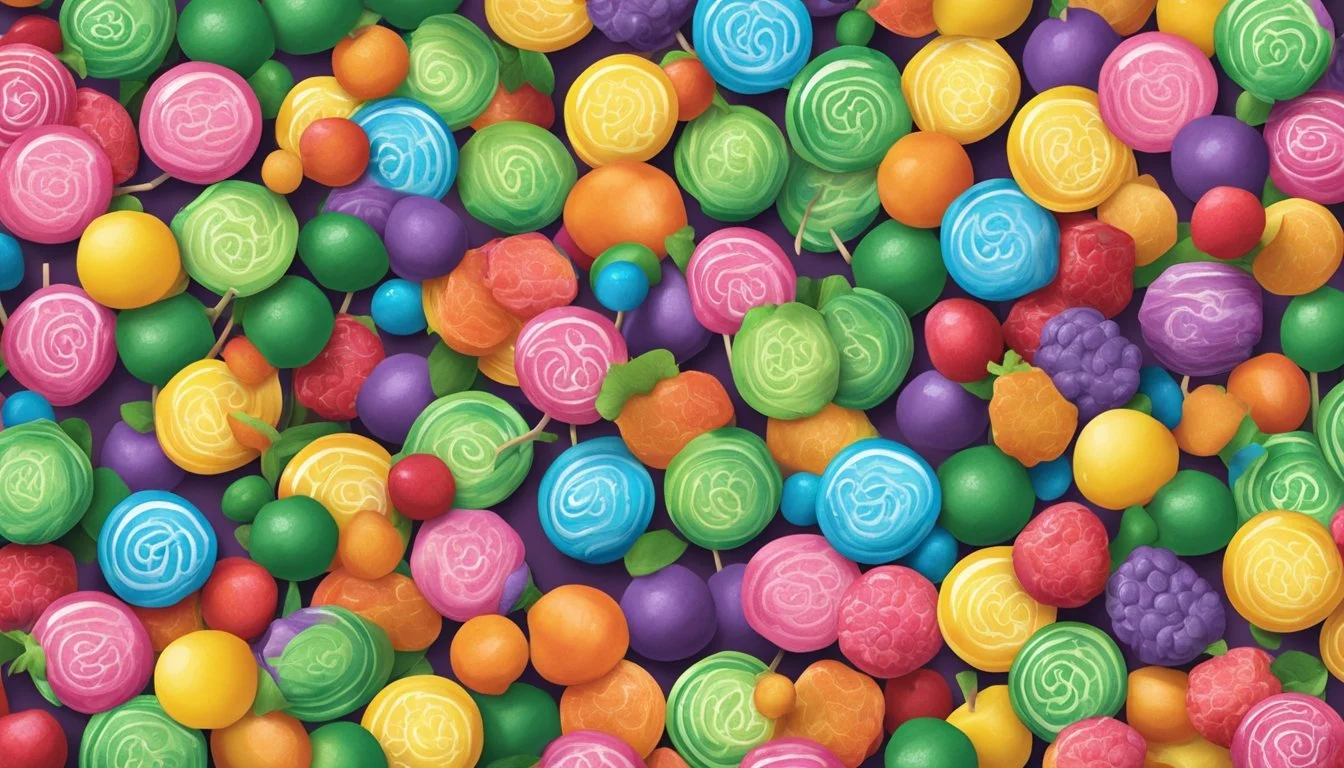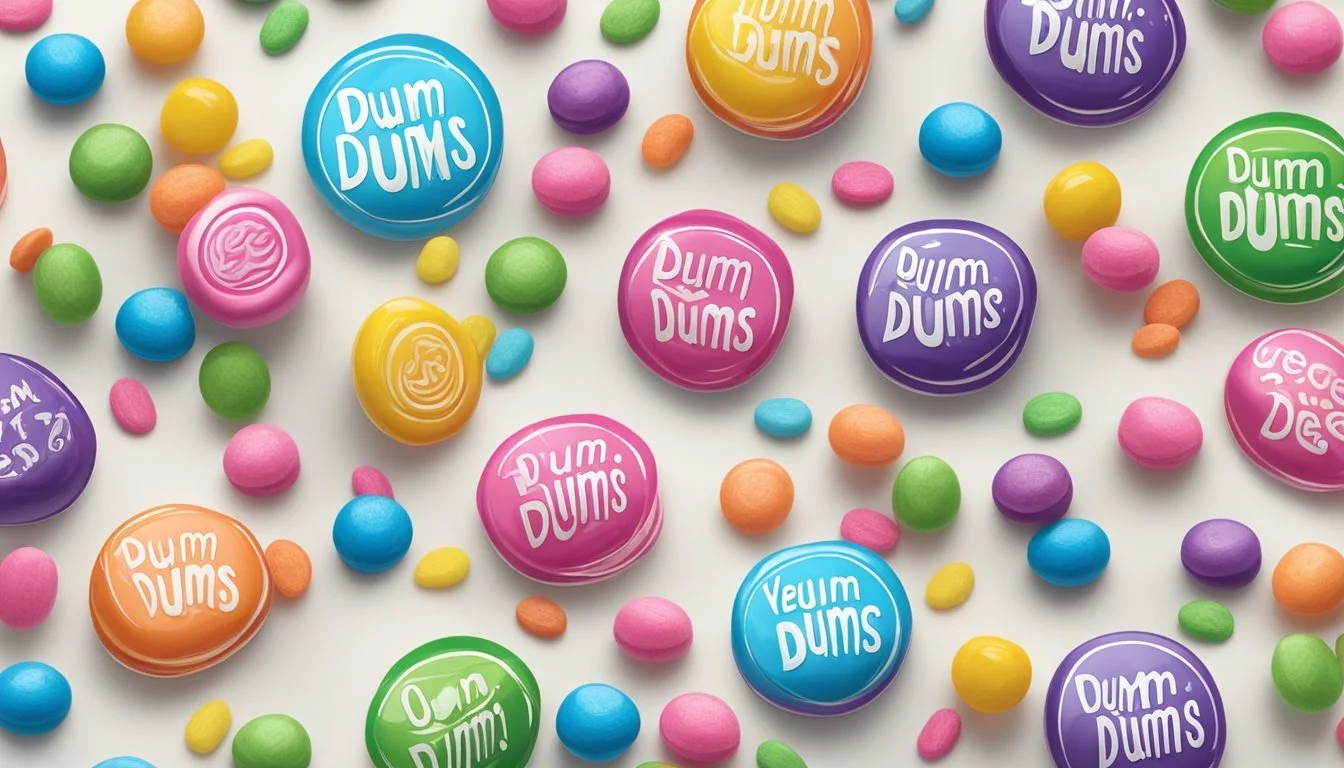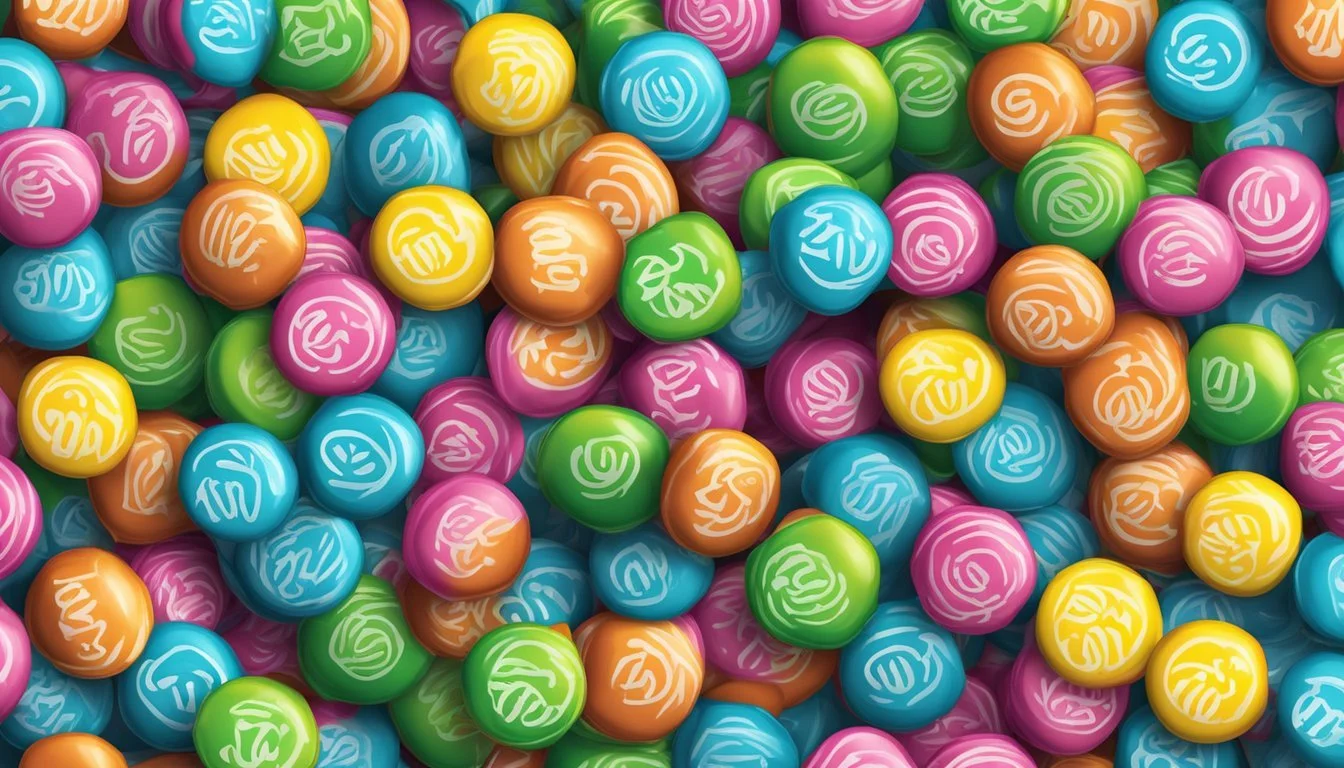Are Dum Dums Vegan?
Unveiling the Truth About These Popular Lollipops
Dum Dums lollipops have become a topic of discussion within vegan communities due to their widespread popularity and accessibility. Vegans follow a diet that excludes all animal products, so determining whether conventional candies like Dum Dums are suitable for a vegan lifestyle is essential. The main concern for vegans when evaluating whether a product complies with their dietary requirements lies in the ingredients list, which must be free of any animal-derived substances.
Upon examining the ingredients of Dum Dums, it is found that they do not contain obvious non-vegan components such as gelatin, which is derived from animal collagen. Instead, they are primarily made with plant-based ingredients, and the manufacturer has not reported any animal testing. However, certain ingredients commonly found in candies, such as sugar and artificial colors, may pose ethical concerns. The refining process of sugar often involves bone char, an animal product, whereas artificial colors may have a history of animal testing, thus making some vegans hesitant to consume them.
Dum Dums Overview
Dum Dums are a brand of spherical lollipops, which have been a classic American candy since their inception in 1924. Manufactured by the Spangler Candy Company, they come in a variety of flavors that cater to a wide range of tastes. Packaged in a signature wrapper, these candies are easily recognizable and ideal for sharing due to their small size.
Each Dum Dum is crafted on a simple stick, making them a convenient and mess-free treat for consumers of all ages. The lollipops are known for their mystery flavor, a unique addition that changes regularly and keeps the experience of consuming Dum Dums fresh and exciting.
Ingredients:
Sugar
Corn Syrup
Citric Acid (for tartness)
Flavors
Color Additives (including Red 40)
Common Features of Spangler's Dum Dums:
Allergen-free: They are free from common allergens like peanuts, tree nuts, milk, eggs, fish, shellfish, (What wine goes well with shellfish?) wheat, and gluten.
Flavor Assortment: A diverse array of flavors ranging from traditional ones like cherry and root beer to more inventive ones like the mystery flavor.
Accessibility: Dum Dums are widely accessible and can be found at various retail outlets, making them a popular choice for parties, Halloween treats, and as rewards or decorations.
The Spangler Candy Company remains transparent about the ingredients used in Dum Dums, allowing consumers to make informed choices regarding their confectionary preferences.
Understanding Veganism
When considering whether a product is suitable for a vegan diet, it's crucial to understand what defines vegan products and to be aware of common non-vegetarian ingredients that could be hidden in food items.
Defining Vegan Products
A product is considered vegan if it does not contain any animal-derived components and has not been tested on animals. The vegan lifestyle extends beyond mere diet concerns to include clothing, cosmetics, and any other products that may use or exploit animal products or by-products. Products that are vegan-friendly not only exclude meat, poultry, fish, and seafood but also any substances derived from animals such as dairy, eggs, honey, leather, fur, silk, wool, and soaps and cosmetics that include animal fats or are tested on animals.
Examples of vegan-friendly ingredients:
Plant-based milks (almond, soy, rice, oat)
Tofu and tempeh
Legumes and pulses
Nuts and seeds
Whole grains
Common Non-Vegan Ingredients
Consumers following a vegan diet must scrutinize ingredients lists for non-vegan additives that may not be immediately obvious. Many products may appear vegan at first glance, but closer inspection can reveal the inclusion of ingredients derived from animals.
Common non-vegan ingredients include:
Non-Vegan Ingredient Often Found In Gelatin Gummy candies, marshmallows, desserts Carmine Red food coloring in candies, cosmetics Casein Cheese substitutes, some soy cheeses Whey Protein supplements, breads, crackers Lanolin Chewing gum, beauty products Beeswax Candies, polishing waxes Honey Sweets, baked goods, salad dressings L-cysteine Commercial bread products
Identifying and avoiding these ingredients is imperative for individuals committed to a vegan lifestyle.
Ingredients Analysis
In this section, we examine the individual components that constitute Dum Dums lollipops to determine their compatibility with a vegan diet.
Core Ingredients of Dum Dums
Dum Dums are made with a combination of sugar, corn syrup, and artificial flavor. These ingredients are considered vegan-friendly, as they do not directly derive from animal products. Citric acid and malic acid are also present in some flavors, serving as natural flavoring agents and preservatives, both of which are typically vegan.
Artificial Additives
The flavoring in Dum Dums is largely attributed to artificial flavorings. These artificial ingredients are synthesized chemically and do not contain animal-derived components, making them suitable for vegans.
Color Additives and Concerns
Dum Dums derive their vibrant hues from various food colors, including Red 40, Yellow 5, Blue 1, and Yellow 6. While these artificial colors are not sourced from animals, it's crucial to note that they may have been tested on animals in the past, which might raise ethical concerns for some vegans.
Controversial Ingredients
One potential issue for vegans is the sugar used in Dum Dums. Some refined cane sugar is processed with bone char, an animal product, to achieve its white color. However, the sugar in Dum Dums does not involve bone char in its processing. Additionally, Dum Dums are free from gluten, dairy, eggs, and wheat, avoiding common allergens and non-vegan ingredients.
Specific Dietary Considerations
When selecting candies like Dum Dums, individuals with specific dietary needs focus on two main aspects: potential allergens and dietary certifications that align with their lifestyle choices.
Allergens and Food Sensitivities
Dum Dums are generally considered allergen-friendly as they are manufactured without several common allergens. The product claims to be gluten-free, dairy-free, and peanut-free. This absence of major allergens caters to individuals with sensitivities to these specific ingredients. It is noteworthy that Dum Dums also do not contain tree nuts, shellfish, eggs, or lactose, making them suitable for people with allergies to these items. However, those with allergies should always check the latest packaging and ingredient information, as manufacturing processes can change.
Vegan Certification Status
Regarding their vegan status, Dum Dums do not contain direct animal products, such as milk, which is important for consumers adhering to a vegan diet. However, they have not been officially certified as vegan. The uncertainty stems from ingredients like natural flavors and colors, which can have varying sources not always disclosed by manufacturers. While Dum Dums are often considered vegan-friendly, those seeking formal certification or with strict adherence to vegan principles should be aware of this ambiguity.
Ethical and Environmental Factors
When assessing whether Dum Dums are vegan, it is pertinent to consider their ethical and environmental implications, which include aspects of animal testing and the broader environmental impact of their production.
Animal Testing and Ethical Concerns
The issue of animal testing is a significant concern for many consumers when determining the ethical stance of a product. Dum Dums, like most candies, do not inherently require animal testing for their ingredients. However, artificial colors often used in candies like Dum Dums have historically been tested on animals. Organizations such as PETA advocate for cruelty-free products and maintain lists of companies that do or do not test on animals. It's important to note that while the ingredients in Dum Dums may be animal-derived free, the use of artificial colors raises ethical questions for some vegan consumers who are concerned about such practices' indirect support.
Environmental Impact of Candy Production
The production of confectioneries, including Dum Dums, carries an environmental impact. This impact can be assessed by considering:
The sourcing of ingredients (whether they are sustainable and if their production involves high carbon emissions)
The energy-intensive manufacturing process
The packaging materials used and their recyclability
It is critical to acknowledge that any agricultural activity, even plant-based, has some degree of environmental footprint, which may include the use of fertilizers and pesticides that can have detrimental effects on ecosystems and fish. The confectionery industry's reliance on plastic and other materials for packaging also plays a role in environmental degradation if not managed properly.
Although Dum Dums do not contain animal-origin ingredients, which tend to have a higher ecological impact in terms of greenhouse gas emissions and land use, it is the production and packaging processes that might raise environmental concerns.
Health and Nutrition
When assessing Dum Dums in the context of health and nutrition, it is essential to consider their simple ingredients and caloric content. These lollipops are comprised of sugar, corn syrup, citric acid, malic acid, artificial flavors, and artificial colors. They lack complex ingredients or high-fat content, making them fat-free treats.
In terms of portion control, each Dum Dum contains approximately 25 calories, which can be a manageable addition to a diet when consumed in moderation. The small size of these lollipops naturally assists consumers in managing portion sizes, potentially aiding those who are monitoring their calorie intake.
However, despite the absence of fat and the usage of straightforward ingredients, consumers should be mindful that Dum Dums are essentially sugar-based. A high consumption of sugary treats like Dum Dums could contribute to health issues such as obesity and tooth decay if not balanced with a nutritious diet and good dental hygiene.
Nutrient Amount per Dum Dum (Approx.) Calories 25 Total Fat 0 g Sugar 5 g
As a confectionery, Dum Dums could serve as a sweet indulgence. Nonetheless, their role in a health-conscious diet is limited, and they are best enjoyed sparingly within the framework of a balanced lifestyle.
Vegan Candy Alternatives
When seeking candy options that align with a plant-based diet, consumers will find that several candies are made without animal-derived ingredients. These alternatives come from reputable brands known for their vegan-friendly assortments.
Plant-Based Candy Options
Vegan candies utilize ingredients sourced from plants, avoiding common non-vegan components like gelatin. Some of these plant-based candies are:
Swedish Fish: A gummy candy that's gelatin-free and a favorite for its fruity flavors.
Sour Patch Kids: These sour-then-sweet treats are also made without any animal-derived ingredients.
Skittles: Once containing gelatin, Skittles have since removed animal-derived ingredients from their recipe.
It is, however, important to remain aware of potentially non-vegan processing agents like bone char often used in sugar refining. Consumers may need to contact manufacturers to confirm vegan-friendly processing practices.
Vegan Brands and Options
Several brands specifically cater to the vegan market or offer vegan options:
Twizzlers: Known for their licorice sticks, they offer predominantly vegan ingredients but may not be suitable for all vegans due to cross-contamination risks.
Airheads: These chewy taffy-like candies do not contain animal products.
Remember to always check the label or the brand's website for the most current ingredient information, as recipes and manufacturing processes can change.
Consumer Information
This section provides a detailed look into the various aspects of Dum Dums in the context of their vegan status, focusing on product availability and the information conveyed through labeling and packaging.
Product Availability and Variants
Dum Dums, produced by the Spangler Candy Company, are widely available in numerous flavors and a few special variants. The original Dum Dums come in a variety of flavors such as cherry, blue raspberry, and root beer. Additionally, there are limited edition flavors and the ever-popular mystery flavor that keeps consumers guessing. The Color Party line offers lollipops in single colors and flavors, designed for coordinated events. Seasonal offerings include Bunny Pops for Easter and Heart Pops for Valentine's Day. Each of these variants maintains the same ingredient baseline, ensuring a consistent vegan-friendly status across the range.
Labeling and Package Information
Spangler Candy Company ensures that their packaging provides clear labeling with ingredient lists and potential allergens. The labels indicate the absence of common allergens, solidifying Dum Dums as a choice for those with dietary restrictions. Packaging varies from standard bags to larger mixed offerings; however, the vegan-friendly message remains consistent. It is important for consumers to review the ingredient list for any changes that could affect the vegan status due to the inclusion of new flavors or special editions.
The company's transparency in labeling allows consumers to make informed choices regarding their dietary preferences.
Conclusion
Dum Dums lollipops are generally considered acceptable for a vegan diet. The primary ingredients of Dum Dums are plant-based including sugar, corn syrup, citric and malic acid, and artificial flavorings. It is worth noting that these ingredients do not originate from animal sources. The concern arises with the inclusion of artificial colors and refined sugar.
Refined white sugar may be processed using bone char, a product derived from animal bones, which some ethical vegans might oppose. The artificial colors used in Dum Dums could have been tested on animals, presenting another potential conflict for vegans prioritizing cruelty-free practices.
Consumers should also be aware that manufacturing processes and ingredient sourcing can change. As a result, for the most current information, it's advised to contact the manufacturer directly. People following a vegan lifestyle often check for the latest product certifications and company policies on animal testing.
In summary, the dietary aspect of veganism regards Dum Dums as vegan, but ethical considerations regarding sugar processing and artificial color testing introduce complexities that may influence an individual's decision to consume these lollipops.

